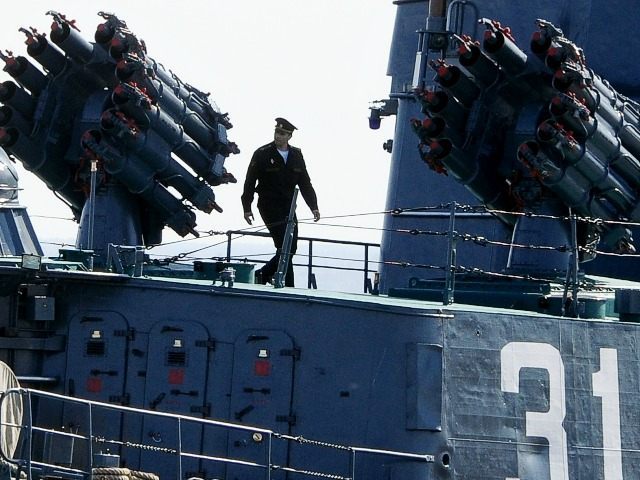The Russian government is operating close to undersea cables, setting off alarms of American officials who believe the Kremlin could cut the lines if tensions continue to escalate.
The New York Times reports that these wires “carry almost all global Internet communications.” There is no evidence of cable cutting, but officials are wary that the Russians could destroy “the fiber-optic cables at some of their hardest-to-access locations to halt the instant communications the West’s governments, economies and citizens have grown dependent on.” The Russian sea activities are classified and not often discussed in public, but it is not a secret there are major concerns in the Pentagon.
“I’m worried every day about what the Russians may be doing,” stated Rear Adm. Frederick J. Roegge.
“It would be a concern to hear any country was tampering with communication cables; however, due to the classified nature of submarine operations, we do not discuss specifics,” agreed Cmdr. William Marks.
In May, the Baltic states, Sweden, and Finland condemned Russian officials for visits “from Russian warships probing into the construction area in the Baltic state’s exclusive economic zone” as the countries lay down cables beneath the Baltic sea. Lithuania, one of the most vocal opponents of Russia, threatened legal action against the Kremlin.
“We’ve already informed our transatlantic partners of the issue and will continue raising it on other occasions both with the Russian Federation and other international partners,” exclaimed Foreign Minister Linas Linkevicius. “If similar incidents happen again, the possibility of employing international legal instruments against the Russian Federation will be considered.”
Sweden is “Lithuania’s main partner in the NordBalt project.” A member of parliament noticed a “‘growing pattern’ of Russian provocations.” One occurred on April 30 when “a vessel from the Russian Navy’s Baltic Fleet entered” the zone “and headed toward a Nordbalt construction ship managed by the Swedish-Swiss conglomerate ABB.” The Lithuanian Foreign Ministry even noted the Russian vessel attempted “to chase the construction ship away” from its rightful position in the economic zone.
“The ALCEDO vessel chartered by ABB was asked by the Russian Navy to leave its position in Lithuania’s exclusive economic zone, where it had a legitimate right to be, according to international law,” declared Swedish Foreign Ministry spokesman Gabriel Wernstedt. “We have raised the issue with Russian authorities, as we’ve done when similar incidents have occurred. We take this very seriously.”
A study in 2012 on undersea communications concluded that anchors and natural disasters cut the wires. However, those are often closer to shore and easy to repair. Those in the Pentagon worry that the Russians are “looking for vulnerabilities at much greater depth, where the cables are hard to monitor and breaks are hard to find and repair.”
Russia’s invasion of Ukraine and Crimean annexation have devastated its diplomatic relations with the West. Since March 2014, the media has documented numerous incidents of Russian operations intended to disturb their NATO adversaries. The European Leadership Network reported that a war between Russia and NATO almost broke out 66 times during that time.
NATO intercepted hundreds of Russian jets over NATO airspace in 2014. NATO officials said these Russian planes do not use on-board transponders utilized for surveillance. The organization said the plans “pose a potential risk to civil aviation as civilian air traffic control cannot detect these aircraft or ensure there is no interference with civilian air traffic.” Portugal, a member of the European Union and a founding member of NATO, chased a Russian ship out of their waters on November 6. Russia claims the ship had been deployed to conduct “marine research,” but Portugal intervened when the ship floated almost fourteen miles from the coast.
In June, Russian jets encroached Estonian airspace, which forced the “RAF Typhoon fighters, based in Estonia to identify and escort them away.” NATO troops were “practicing sea landings, air lifts and assaults” in the area. The Russian government claimed these drills were “reviving the ghost of the Cold War.” On August 25, reports stated the U.S. is planning “to send Lockheed Martin Corp.’s F-22 fighter jets to Europe.”

COMMENTS
Please let us know if you're having issues with commenting.